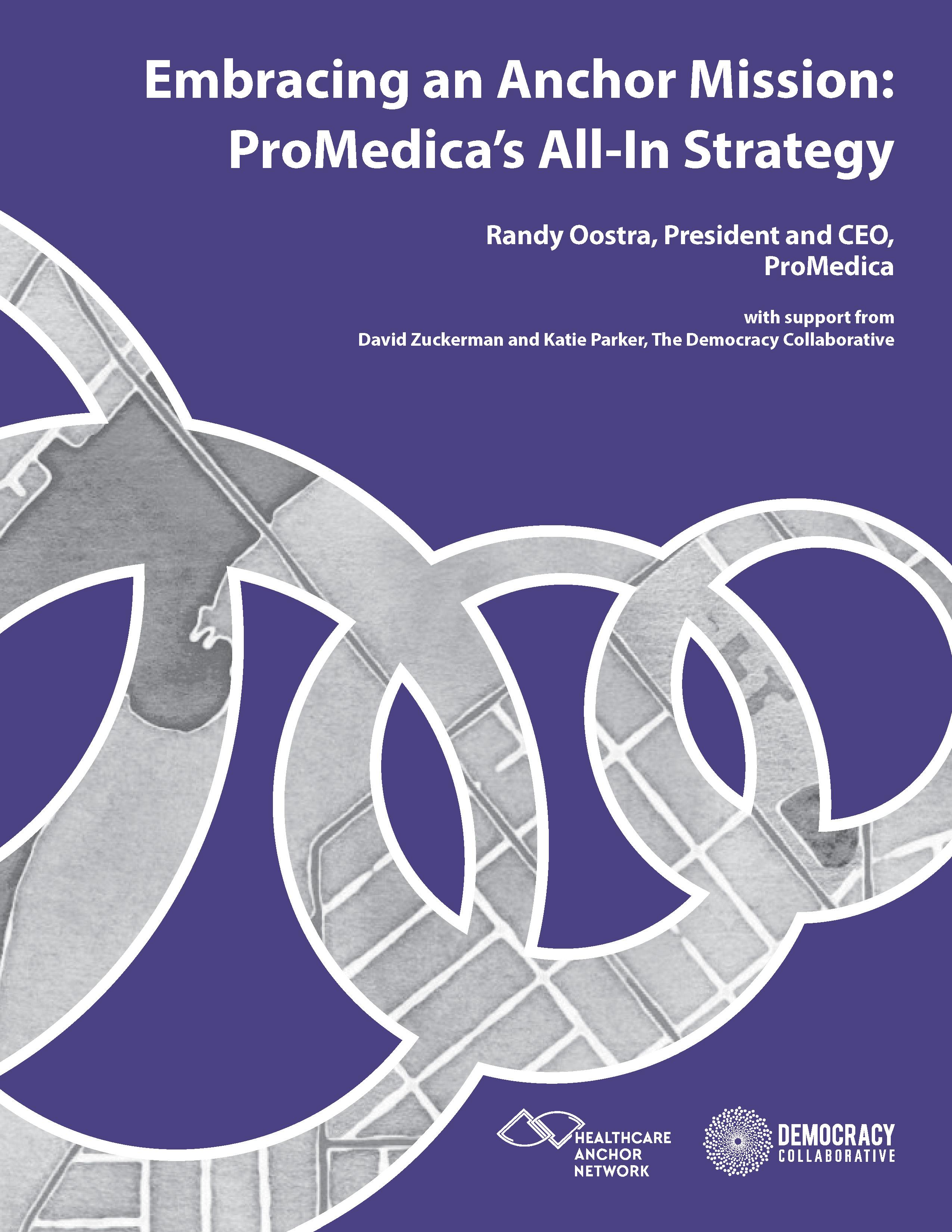Written by Randy Oostra, CEO of ProMedica (a member of the Healthcare Anchor Network) with the support of The Democracy Collaborative's David Zuckerman and Katie Parker, this report offers an in-depth look at how the Toledo, Ohio based health system aligned its institutional operations and clinical practice to better tackle the social determinants of health. From an innovative hospital-owned grocery store in a food desert to investments in preserving affordable housing, this exploration of ProMedica's decade-long journey to understand how their resources as a healthcare anchor could be used for the wellbeing of the communities they serve is a useful guide for hospitals and health systems embarking on similar shifts.
As ProMedica Board Chair Robert LaClair writes in his preface to the report:
We need to look beyond a singular focus on pure clinical and financial success. We need to focus on how we can have truly significant impact on health outcomes and in our communities by addressing the root causes of health and well-being. Medical care on its own is insufficient to achieve better health outcomes. Ever expanding research indicates that other underlying factors such as housing, income, poverty, safety, education, and health behaviors like diet, exercise, and drug use have a far greater influence on health outcomes.
Not our job? On the contrary. Can a health system have any impact on these societal issues? Absolutely. Health systems are among the largest, if not the largest, employer in many American cities. Like universities, health systems are anchor institutions, locally rooted and committed to their communities.
As anchor institutions, if we choose not to lead, who can—or will?
Part of The Democracy Collaborative's Community Wealth Innovators Series
